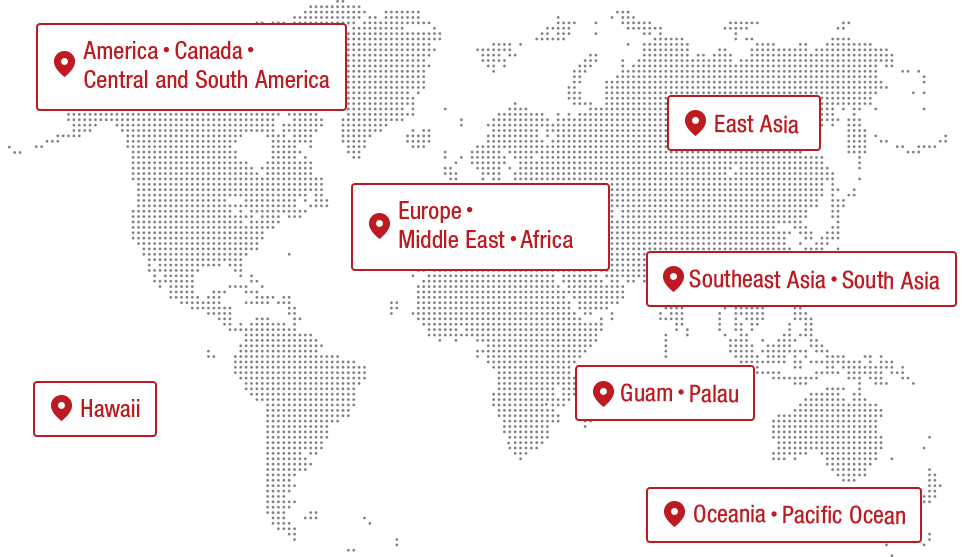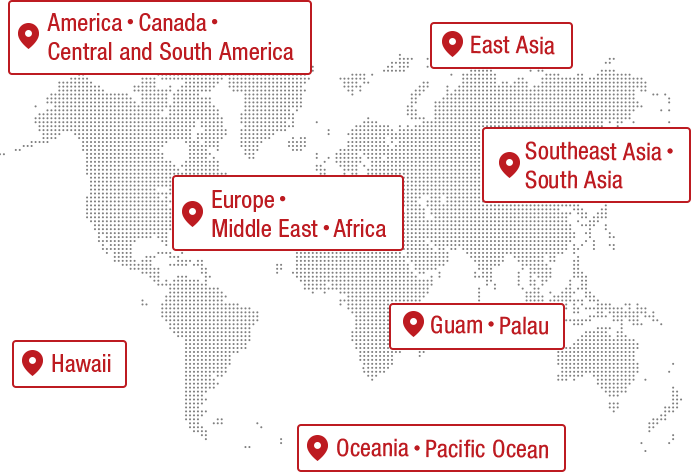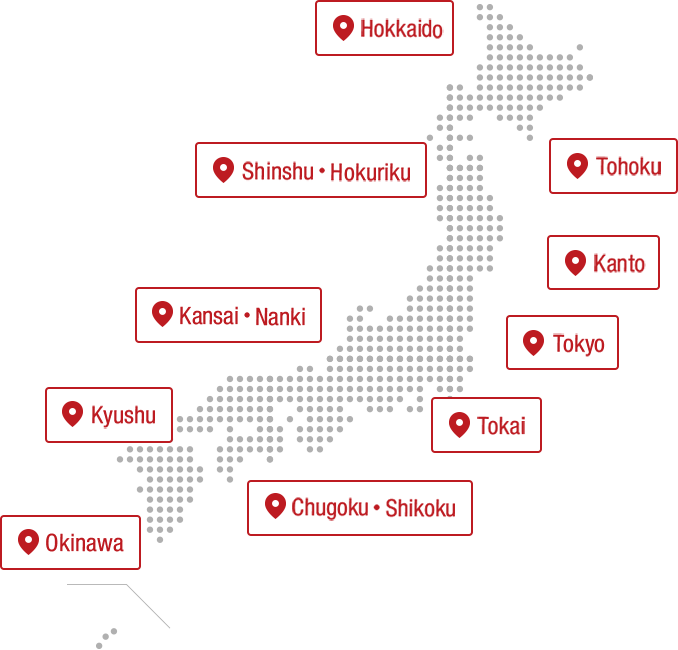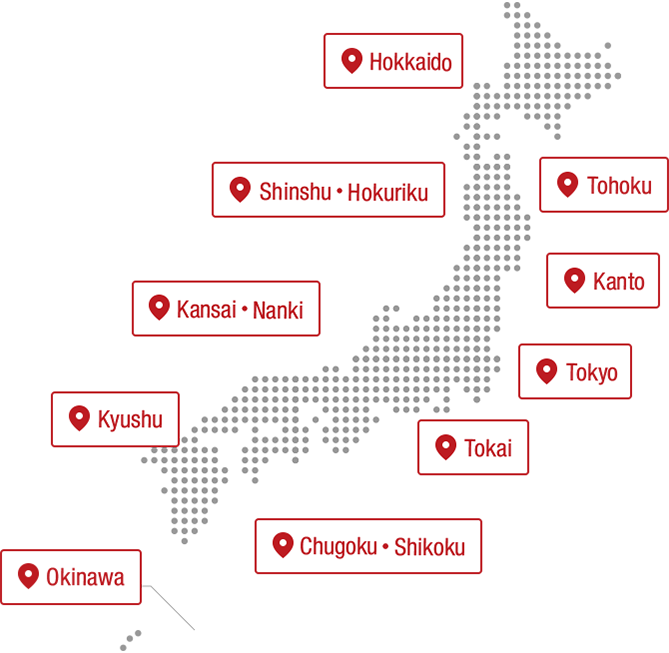INDEX
- Kanazawa's culture and the flavors that have been passed down: The founding of Shibazushi
- "For the customers" leads to food waste
- As a company that takes responsibility for production and consumption - Initiatives for the SDGs -
- Human resource development to pave the way to the future: active female employees
- Shibazushi's creations and challenges continue - to remain a company that walks hand in hand with the local community -
Kanazawa's culture and the flavors that have been passed down: The founding of Shibazushi

Shibazushi operates stores mainly in the three Hokuriku prefectures, delivering deliciousness to customers through pressed sushi and bento boxes.
The company was founded 65 years ago in a small Toshiba showroom in Katamachi, the center of Kanazawa City, Ishikawa Prefecture. The story of how the company was founded was also largely inspired by the idea of "mottainai (a Japanese word for "waste not").
The founder, Tadashi Kajitani, sold Japan's first automatic rice cooker here. He didn't just sell rice cookers, he also demonstrated how to cook rice, which was a groundbreaking initiative at the time.

Although the rice cookers were selling well thanks to the demonstration sales, there was still leftover rice almost every day. Kajitani said he was troubled by this and thought, "Oh, what a waste. How can we use this rice instead of throwing it away?"
So they turned their attention to sushi, which is delicious even when cooked. In Kanazawa, there is a custom of making pressed sushi for festivals and special occasions, so they adapted this custom and started selling it. It was well-received and became so popular that they started selling it on a full scale.
The current signature product, "Sasazushi," also began when Kajitani was inspired by sasamichi and replaced the mochi with rice. The product, born from the founder's innovative ideas, continues to be loved by local customers today.

Thinking about it now, the founder's "mottainai spirit" has something in common with the modern SDGs. The company continues to carry on that spirit, developing products and engaging in social activities with the aim of creating a sustainable world.
By the way, the company name "Shibazushi" was chosen because it was "sushi born from the Toshiba showroom."
"For the customers" leads to food waste - Cancellations due to rain

Shibazushi offers a unique service called "rain cancellation."
There are many different occasions and purposes for which customers use bento boxes, but outdoor events such as sports days are often cancelled if it rains.
Customers are left with nothing but problems, such as, "I don't need the bento anymore...what should I do?" or "I'll have to pay a cancellation fee..."
This "rain cancellation" service solves that problem. If you call by 6:30 a.m. on the day of an event, they will accept your cancellation free of charge.
At first glance, you may wonder, "How can you handle cancellations on the day?" and "What happens to the canceled bento boxes?", which raises concerns about the burden on the store and food waste.
However, at Shibazushi, they have a system in place that prevents ingredients from going to waste by meticulously managing time and determining and managing the number of items that can be produced on an hourly basis each day.
The time to start cooking the rice is confirmed from midnight using a rain cloud radar, and decisions are made based on detailed observations of weather changes such as cloud movement and precipitation. Of course, as this is a manual decision, predictions can be off, but in those cases, the cooked rice is immediately turned into vinegared rice and made into bento lunches, which are then sold at directly managed stores, creating a system that ensures that no food is wasted.
The cancellation service also responds to changes in conditions caused by heavy snowfall that is unique to the Hokuriku region, and is also a service that can help with the current situation where planned events and other activities have been canceled due to the spread of COVID-19.
Thinking about the customers who use the restaurant also leads to a reduction in food waste, a modern issue. Shibazushi is taking on an ideal approach.
As a company that takes responsibility for production and consumption - Initiatives for the SDGs -
In addition, Shibazushi is also participating in food bank activities as a new initiative.
A food bank is a welfare activity whose main activity is to provide food that would be disposed of for various reasons to people in need and welfare facilities free of charge.
Many people may have seen news recently about the increasing number of child refugees (poverty).
Food bank activities are not just about tackling the current issues of food waste and poverty; they are also activities for the future of Japan, with the aim of helping as many children as possible grow into healthy, vibrant adults.

Shibazushi produces a wide variety of bento boxes and sushi for its food bank activities, but mainly provides rice and fish, with about 34 different types.
Although they simply provide the products to facilities, apart from their daily manufacturing operations, they also thoroughly handle customer service such as sorting, management, and delivery methods.


Facilities that have actually used the food bank say they receive feedback such as, "I can eat my favorite food," "I'm happy that there is such a wide variety of food," "The food makes me feel better," and "I'm grateful for the service they provided."
As a local company, Shibazushi is also making contributions to the local community that will lead to the future. In this way, Shibazushi is working on the SDGs in a variety of ways.
Other activities that Shibazushi is working on within the 17 SDGs goals are listed on the company's official website, so be sure to check it out.
Human resource development to pave the way to the future: active female employees
Shibazushi believes that "there can be no growth for the company without the growth of its employees," and aims to create a workplace where employees can feel that they are improving as people.
Recently, the environment has become one in which people of all ages and genders can share their knowledge, and female employees have become more prominent in their roles.
While many organizations still have an imbalanced gender ratio, 80% of the company's employees are female. More and more women are taking on managerial positions and demonstrating their abilities as leaders, and the company is seeing many successes.
Recently, working women have been taking the lead in planning and developing lunch boxes using meat substitutes, which have been gaining attention in recent years, and have commercialized "Soy Meat Gapao Rice."


This product is being developed as a brand different from the standard products that have been around for a long time. It was launched as a brand called "Shiba Natural" with the theme of "New habits to care for your body" for the next generation of customers. It is gradually gaining recognition and is now starting to attract attention.

It was not an easy road to propose products in a completely different genre from the standard products beloved by the locals and have them accepted by customers. However, each employee is sensitive to changes in the world and is conscious of the company's philosophy of continuing to evolve and grow, which has led to success.
Shibazushi's creations and challenges continue - to remain a company that walks hand in hand with the local community -


Pressed sushi, a Kanazawa culture, is spreading, especially among locals.
In order to impress not only local customers but also many more in the future, Shibazushi pursued new techniques and equipment, and was particular about the ingredients and manufacturing process, resulting in the creation of "frozen sushi."
Even though it's frozen, the rice is plump as if it was freshly cooked. Even though it's frozen, the toppings are fresh as if they were just made. It's so popular that some customers say they can't tell the difference at all from regular sushi.
Until now, when "Sasazushi" was delivered nationwide, the expiration date was the day it arrived in the customer's hands, which was a drawback. However, sushi made using this freezing technology makes it possible to "eat as much as you want, whenever you want," and sales channels are gradually expanding.
The day when Shibazushi products appear on dining tables not only in Japan but all over the world is not far off.

In modern times, as food becomes more diverse, the "rice culture" is gradually being lost. "Shibazushi" is a company that wants to protect the food culture that Japan has nurtured by conveying the joy of eating rice, and the history and culture of rice.
As a company involved with food, the company says it wants to continue contributing to the local community and society as a bridge connecting the present and future of rice culture.


You can experience Shibazushi's SDGs initiatives at Shibazushi no Sato, located on the grounds of the company's headquarters factory in Ishikawa Prefecture. An old house has been relocated and renovated into a shop, where you can enjoy the natural flavor of rice, including rice balls and lunches cooked in a kamado (fired stove), as well as the company's signature sasazushi (bamboo grass sushi) and bento lunches.

When traveling, visiting places that are actively working to achieve these SDGs will enable you to make sustainable choices as a tourist.
When you travel to Ishikawa Prefecture, why not enjoy lunch at "Shibazushi no Sato" and pick up some "Shibazushi" products as souvenirs? It will be a special trip that doesn't just end with consumption.
Shibazushi
Shibazushi no Sato
| address | : | Within the Shibazushi Shiinaho Head Office and Factory grounds, 2-5 Inaho, Kanazawa City, Ishikawa Prefecture |
|---|---|---|
| phone | : | 076-240-4822(直通/飲食に関するお問合せ専用) 076-240-4569(本社/その他ご予約) |
| business hours | : | Weekdays: 9:00-17:00 / Saturdays, Sundays and holidays: 8:30-17:00 *Lunchtime: 11:00-14:00 (last order 13:30) |
| Regular Holiday | : | [Food & Drink] Wednesday / [Bento Lunch] January 1st |
| web | : | https://shibazushi.jp/shop_list/ishikawa/shibazushinosato |
Related article
The contents published are accurate at the time of publication and are subject to change.













